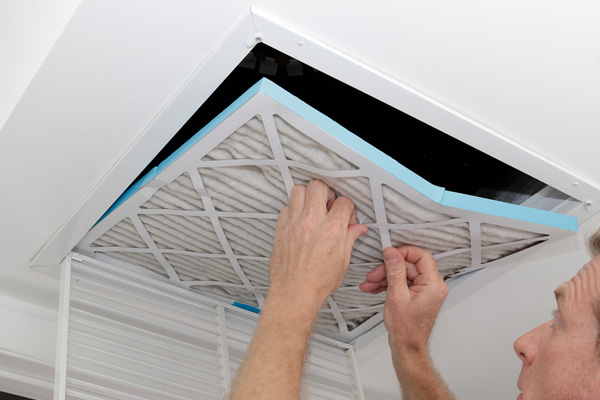Indoor air quality is one of the most critical yet overlooked aspects of home and building maintenance. While most people associate HVAC systems with temperature control, their role in air purification is just as vital. The air we breathe inside our homes can be several times more polluted than outdoor air, especially in well-insulated spaces where airflow is limited. This makes filtration systems within HVAC units not just a convenience but a necessity. Dust, allergens, mold spores, and even microscopic pollutants can circulate continuously if not properly filtered out. When HVAC systems are neglected or filters are poorly maintained, these contaminants accumulate, affecting health, comfort, and even productivity. Effective HVAC filtration reduces respiratory issues, improves sleep, and lessens the burden on the lungs, especially for children, the elderly, and those with sensitivities. Understanding how HVAC contractors address indoor air quality through filtration reveals just how much of an impact a clean airflow system has on our daily environment.
Breathing Easier Starts Behind the Vents
1. The Role of Filters in Capturing Airborne Contaminants
Filtration is the first line of defense against indoor air pollution. HVAC systems pull in air from inside a home or commercial space, condition it, and recirculate it throughout the environment. During this process, filters are responsible for trapping particles like dust, dander, pollen, smoke, and even bacteria. The type, condition, and placement of these filters directly influence the quality of the air circulating through a building. Contractors assess the specific needs of each property to determine whether standard filters are sufficient or if high-efficiency options, such as HEPA or MERV-rated filters, are more suitable. For homes with pets, allergy sufferers, or those near construction or high-pollution areas, these enhanced filters make a measurable difference. During routine HVAC Repair or maintenance appointments, technicians inspect filters for buildup, gaps, and saturation levels, ensuring the filtration system is functioning at its full potential. When properly maintained, filters not only protect human health but also preserve HVAC equipment by preventing internal clogging.
2. Proper System Design for Balanced Airflow and Filtration
Filtration alone doesn’t determine indoor air quality—the overall system design plays a key role as well. Contractors evaluate the layout of the ductwork, the size of the system, and airflow rates to ensure that air is being pulled in and pushed out evenly and efficiently. Poor airflow reduces the effectiveness of even the most advanced filters. If air stagnates or bypasses the filtration path, pollutants can spread and settle throughout the property. Balanced airflow ensures consistent delivery of clean, conditioned air across all rooms, avoiding hotspots or cold zones where dust tends to accumulate. Additionally, contractors may recommend zoning systems or duct modifications to improve efficiency and coverage of filtration. This often results in enhanced energy use, as the system doesn’t need to work as hard to maintain the desired temperatures. A properly designed HVAC system, paired with high-quality filters, establishes a foundation for healthier indoor environments that consistently deliver cleaner air where it’s needed most.
3. Humidity Control and Air Filtration Go Hand in Hand
Effective filtration goes beyond just capturing solid particles—it also works best when humidity levels are appropriately managed. High indoor humidity allows mold, mildew, and bacteria to thrive, potentially overwhelming even the most efficient filters. Conversely, overly dry air can cause skin irritation, breathing discomfort, and a greater release of fine dust into the air. HVAC contractors frequently assess humidity levels during service visits and may install dehumidifiers or humidifiers as part of a larger air quality plan. By controlling moisture, these systems reduce the workload on filters and help them last longer between changes. Filters remain drier, which also prevents mold from growing within the system itself. Contractors understand how critical it is to manage these conditions before recommending filter upgrades, ensuring that air is not only filtered but stabilized. This combination is key to maintaining breathable indoor environments, especially in climates with extreme seasonal swings or in tightly sealed buildings where airflow is naturally restricted.
4. Customized Maintenance Plans to Support Long-Term Air Quality
Even the most advanced filtration setup is only as effective as its maintenance schedule. Dirty filters, clogged ducts, and neglected coils all undermine filtration efficiency and contribute to declining air quality over time. That’s why HVAC contractors often recommend customized maintenance plans that align with each property’s specific needs. These plans may include seasonal inspections, filter changes, duct cleaning, and airflow testing. The goal is to create a proactive approach that catches minor issues before they affect the broader indoor environment. Contractors tailor these services based on whether the space is residential or commercial, how often it is used, and the presence of children, pets, or individuals with respiratory concerns. Regular tune-ups also extend the lifespan of the entire HVAC system, ensuring consistent performance and reducing the likelihood of unexpected breakdowns. By staying on top of service needs, property owners can avoid the hidden health hazards of dirty air while also keeping energy costs predictable and manageable.
Indoor air quality is more than just a luxury—it’s a cornerstone of a healthy, functional living or working space. Through thoughtful filtration, system design, humidity control, and routine maintenance, HVAC contractors play a crucial role in transforming the air we breathe every day. Proper filtration isn’t about just swapping out a dusty filter now and then. It’s a continuous, dynamic process that ensures every breath is cleaner and more comfortable. These improvements contribute to better sleep, reduced illness, and higher indoor comfort levels, all without sacrificing efficiency or aesthetics. When contractors assess and update HVAC systems with air quality in mind, they help prevent long-term health issues and reduce environmental contaminants that would otherwise go unnoticed. From homes to offices, the benefits of proper filtration reach into every corner of daily life, quietly supporting health and well-being one clean breath at a time.



























